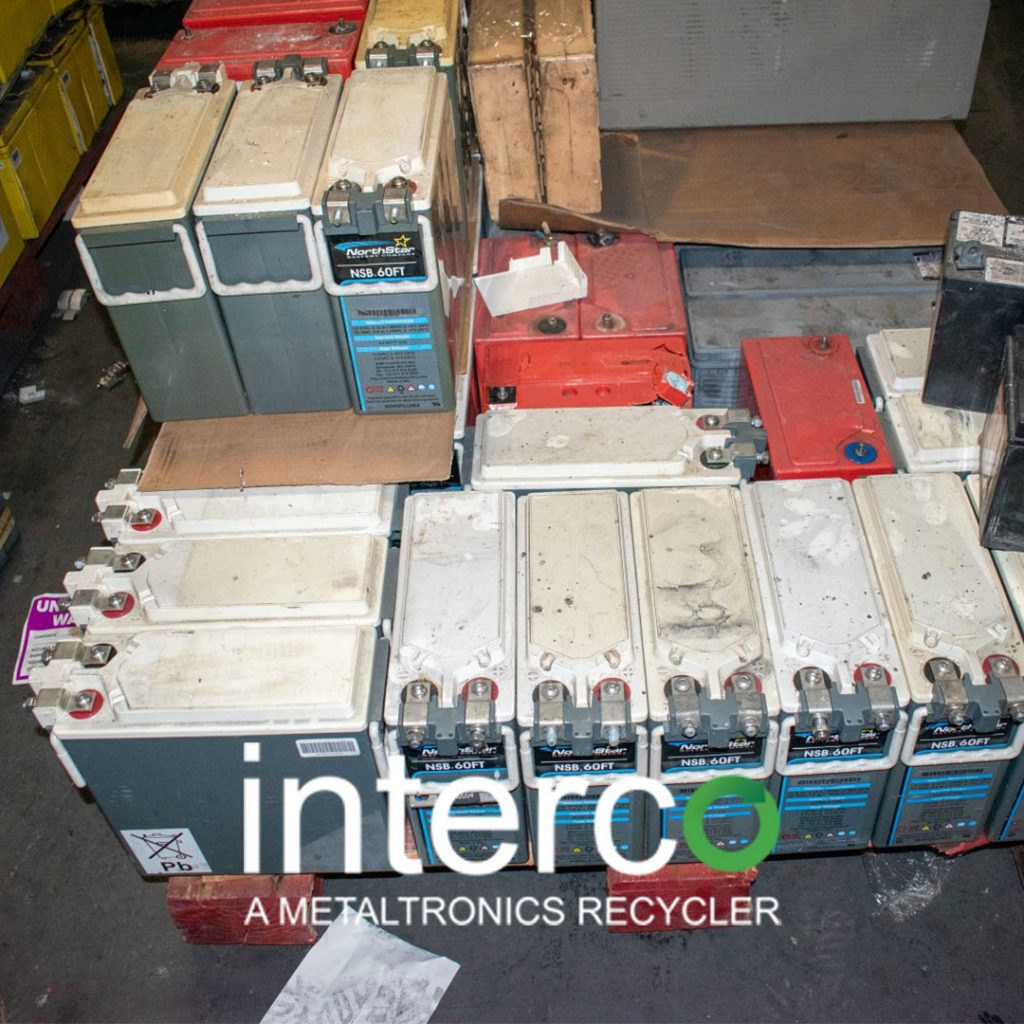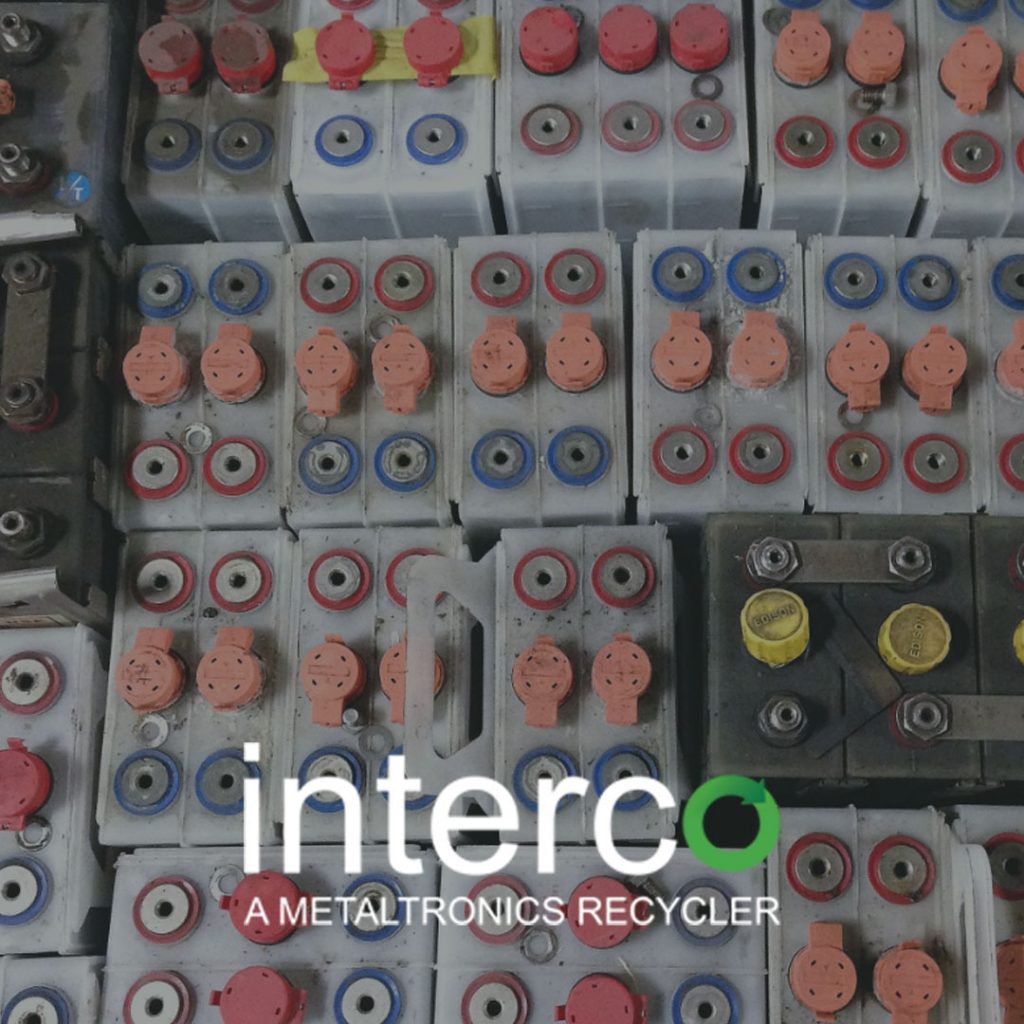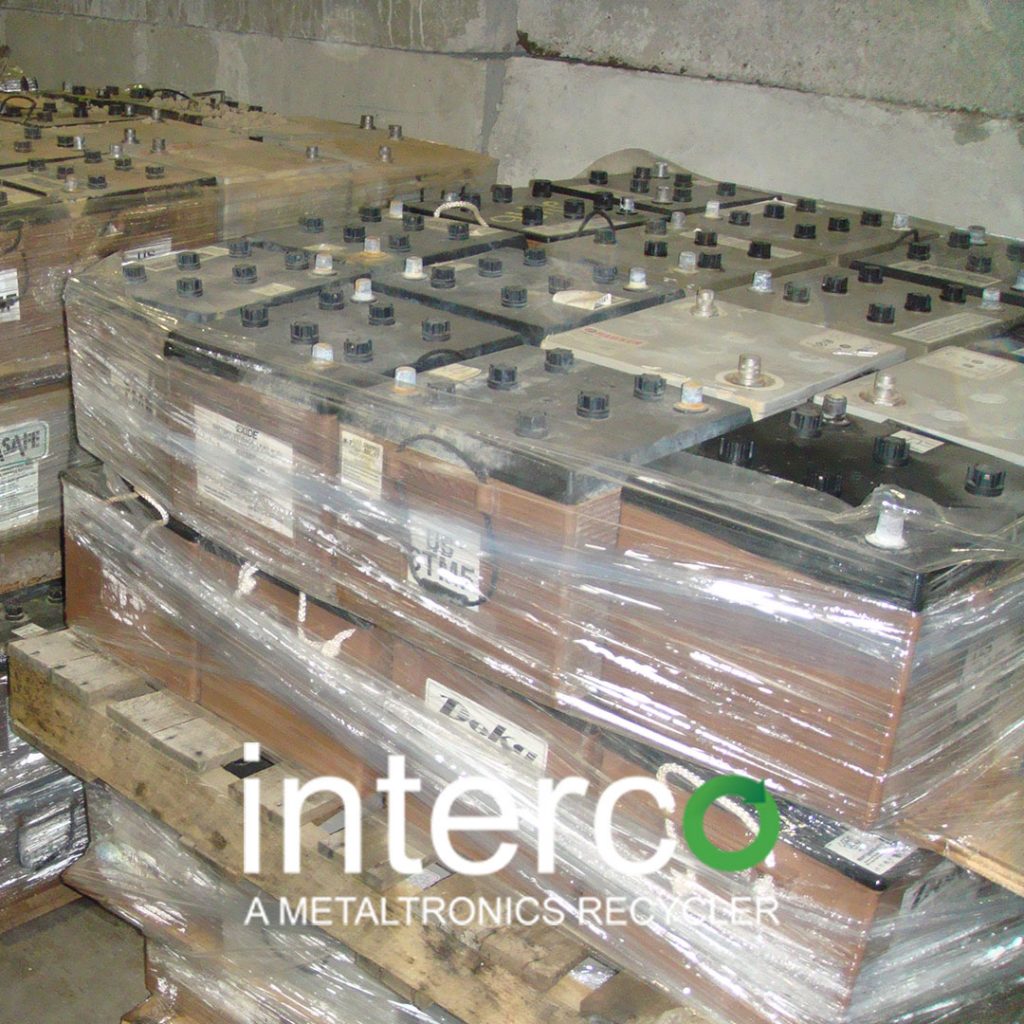Recycling Lead-Acid Batteries

Recycling Lead-Acid Batteries
Car batteries, and any other type of large lead-acid battery, cannot go in household trash or recycling. Therefore, lead-acid batteries paved the way to the success of recycling.
Recycling lead-acid batteries are vital because eventually these batteries reach end-of-life status or become obsolete and must be disposed of.
Battery manufacturers produce several types of batteries in use today. Different recycling processes are available for each to recover and recycle the materials.
Additionally, lead-acid batteries are banned from landfills and incinerators in every state because of their toxicity levels. Even though environmentally unfriendly, lead-acid batteries continue to hold a strong market niche, especially as a starter battery.
Today more than 97 percent of these batteries are recycled in the U.S. In fact, Interco recycles lead-acid batteries primarily for their lead content.
The plastic in lead-acid batteries is mostly polypropylene, which has a high heat tolerance. This can enter the recycling process. Furthermore, companies that make new batteries use recycled lead for production. In fact, the EPA estimates that up to 80% of the plastic and lead in any new battery you purchase is recycled.

The History of Lead-Acid Batteries
Batteries such as lead-acid contain large amounts of lead as well as sulfuric acid. When the batteries are made, a set of lead plates are used, each of which represents a negative and positive charge. Once the battery is constructed, it is placed into a container made of plastic.
Lead-acid batteries hold their charges for three to five years before they decline. When you examine the contents of the batteries, you quickly understand why recycling is important. You also want to dispose of the batteries before they start corroding.
The batteries can harm animals and humans, including groundwater supplies if not disposed of or recycled properly. Mining obtains the lead used for the batteries, which also harms the environment over time.
Recycling of lead-acid batteries is a process of great interest in the lead industry. Casings can be resold back to manufacturers to reintroduce the materials back into the industry cycle.
Consumers and companies recycle lead-acid batteries more than any other batteries. Consumers primarily use them in automobiles, motorcycles, smaller vehicles, ATVs, and golf carts. They also use them in boats and other marine equipment. Manufacturers and other industrialists use lead-acid batteries in industrial heavy equipment and forklifts as well.
Lead-acid batteries are very reliable as a backup or auxiliary power as an uninterruptible power supply (UPS) in computers, data centers, telecommunication, and hospitals.

Recycling Lead–Acid Batteries
The process of recycling used lead-acid auto batteries should be done carefully and with all consciousness, preferably in a controlled environment far from residential areas. Here’s how to recycle lead-acid batteries
- First, recycling companies collect expired or used lead-acid auto batteries for battery depositories.
- The recycling company then neutralizes the acids. They introduce a base that subdues the corrosive properties (toxicity) of the acid for safe disposal.
- A hammer mill shatters the battery or breaks it apart. Recyclers refer to this process as hammering.
- Then, place broken pieces in a vat, so that the lead plates and heavy materials sink to the bottom while the plastic floats.
- They transport the polypropylene plastics into a plastic recycler to melt and refine them.
- Then, the process goes to clean the lead plates and heat them in furnaces, so they melt. After this, cast the molten lead into an ingot mold. After a few moments, the impurities float to the top of the cast, and they scrape them away.
- Finally, they re-melt the pure ingot casts and use them in new batteries.
Recycling used lead-acid batteries is significant because of the nature of their composition and use. Manufacturers and consumers alike use lead-acid batteries as backup power supplies or to power things like the following:
- Automobiles
- Electric scooters
- Electric wheelchairs
- Some alarms
- UPS Systems
Interco recycles batteries of all shapes, sizes, and chemistry. The team at Interco continues to lead the way in terms of innovative industrial recycling solutions.
Interco Recycles Lead-Acid Batteries
Overall, recycling lead-acid batteries enable recyclers to recover valuable metals and reduces the harmful effects on the environment that improper disposal causes. Additionally, the team at Interco accepts, processes, trades, and recycles an array of nonferrous metals. To learn more about how to recycle lead-acid batteries, click here.